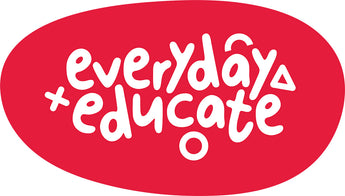Technology has become a game-changer in every facet of our lives. In the realm of education, this impact is equally profound. Let's dive into the world of Educational Technology, or 'EdTech,' and explore how it's revolutionizing the way we learn.
Understanding EdTech
EdTech is a broad term encompassing the application of technology to facilitate, enhance, and make education more accessible. It includes everything from digital whiteboards to online course platforms, AI-powered learning tools, and beyond.
The Evolution of EdTech
It's fascinating to look back and see how far we've come. From chalkboards to overhead projectors, to computer labs, the evolution of EdTech has been a journey of continuous innovation. Today, the landscape is characterized by digital classrooms, AI-assisted learning, and virtual reality experiences.
EdTech in the Classroom
In contemporary classrooms, smartboards have replaced chalkboards, and tablets are becoming as common as textbooks. EdTech tools promote interactive learning, and cloud-based platforms enable students to access their work from any device, anytime, anywhere.
Personalized Learning
One of the most significant advantages of EdTech is personalized learning. AI-powered adaptive learning systems can assess a student's level of understanding and tailor content to suit their unique learning style, speed, and interests.
Remote Learning and EdTech
In the era of COVID-19, EdTech took center stage, enabling remote learning on an unprecedented scale. It ensured that education didn't come to a standstill, even when schools did. Learning Management Systems (LMS) and video conferencing tools became integral to education overnight.
EdTech and Special Needs Education
EdTech has also revolutionized special needs education. Assistive technology tools, like speech-to-text applications and customizable e-books, are empowering students with special needs to learn more effectively.
The Future of EdTech
With advancements in AI, VR, and AR, the future of EdTech is exciting. Imagine virtual field trips to historical sites, AI tutors providing real-time assistance, or gamified learning experiences that make education more engaging.
Challenges and Considerations
While EdTech offers numerous benefits, it's not without challenges. Access and equity, data privacy, and the digital divide are issues that educators and policymakers are grappling with. However, with thoughtful strategies, these challenges can be addressed.
Conclusion: Embracing the EdTech Revolution
The EdTech revolution is here, and it's transforming education as we know it. By embracing this change, we can harness the power of technology to make education more engaging, inclusive, and effective. Remember, technology in education is not just about the latest gadgets or apps – it's about enhancing learning experiences and outcomes.
Frequently Asked Questions
1. What is EdTech?
EdTech, or Educational Technology, refers to the use of technology tools and resources to enhance teaching and learning processes.
2. How is EdTech changing classrooms?
EdTech is making classrooms more interactive and flexible. Smartboards, digital textbooks, and learning management systems are some examples of EdTech in classrooms.
3. Can EdTech support personalized learning?
Absolutely. AI-powered EdTech tools can customize learning based on a student's pace, learning style, and level of understanding.
4. How does EdTech benefit students with special needs?
EdTech offers assistive tools, like speech-to-text applications and customizable e-books, that can make learning more accessible for students with special needs.
Question for You:
1. What does the future hold for EdTech? And do you think it can be a beneficial one for your little ones?



 Chat with Us
Chat with Us